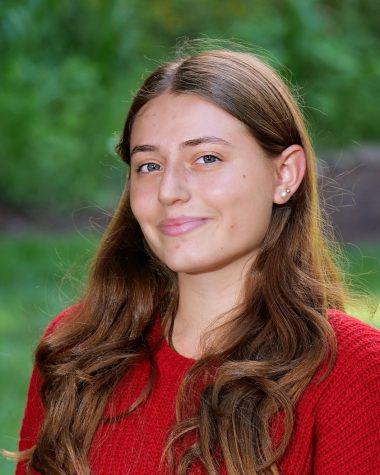Eager for info on Israel
Few classes available for underclassmen interested in Arab-Israeli conflict
September 10, 2021
Love of Israel has always been a core value of CESJDS. During their education, students pretend to take a trip to Israel in kindergarten, celebrate Israeli holidays and plan for the senior capstone trip.
But an understanding of the complexities of the Arab-Israeli conflict is addressed only in the second semester of junior year, which has left some younger students struggling to formulate their thoughts.
When the latest violence between Israel and Gaza erupted, Head of School Rabbi Mitchel Malkus stated that they would discuss the recent event in class. Unfortunately, students felt it was difficult to understand the in-depth topic in so few class periods.
For these students, there are few alternatives to understanding the conflict because the main Arab-Israeli Conflict course is only offered in the spring of junior year. Jewish History Department Chair Aaron Bregman explained, “The complex and in-depth course requires the knowledge of topics like Zionism and Nationalism.”
These concepts are taught in the Modern Israel course required for all juniors during the fall semester. Since the courses are so closely related, it would be hard to move the Conflict course earlier in the high school curriculum without also moving the Modern Israel course.
While the class as a whole is too challenging for underclassmen, that does not mean younger students should have to wait until junior year, Academic Dean Aileen Goldstein said.
“There are gaps in our Israel education as a whole, particularly as we look at the middle school and the early high school years,” Goldstein said. “So how do we build up that narrative so that we’re giving more exposure and opportunities to discuss Israel.”
Goldstein said faculty is actively trying to come up with ways to enhance middle school students’ Israeli education. She also said that she hopes to find a way to integrate aspects of the conflict class as “building blocks” for students in seventh grade through sophomore year so that they are exposed to some information about the conflict.
But while the school contemplates these changes, students like sophomore Yael Rosenberg are left struggling to understand the current situation.
“It’s a really hard conflict to understand, and there are just so many different perspectives,” Rosenberg said. “It’s also insanely difficult to find sources that are unbiased and that just kind of state facts, and it’s hard to come up with your own opinion and think of things objectively.”
Like Rosenberg, Bregman said that he thinks it is important for students to understand the conflict. Engaging younger students in the conflict would not look as complex as the Arab-Israeli Conflict course, but it would present the information more comprehensively. Goldstein also said that this could be inside or outside the classroom, such as during a “lunch and learn.”
“I really do think the question of what does it look like to help students engage in these conversations earlier is one we should keep talking about and figure out because I think there’s a lot of validity to that question,” Goldstein said. “I think it’s also obviously something that makes the school want to support [nuanced education]. It’s what we stand for, so I think it’s worth us figuring out something.”








